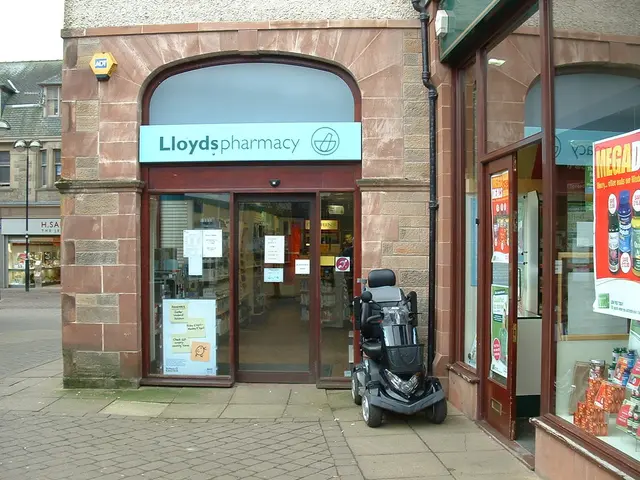Bathroom Incidents Leading to Heart Attacks: Reasons and Details
Cardiac arrest, a life-threatening condition where the heart suddenly stops beating, can occur unexpectedly in people with underlying heart conditions. Even seemingly harmless activities like bathing and showering could pose risks for those with cardiovascular problems.
The primary reasons for this increased risk are heat-induced vasodilation, blood pressure drops, and physiological stress. Hot water causes blood vessels to dilate, which can reduce blood pressure abruptly, challenging cardiovascular stability, especially in older adults or those with heart disease.
Moving from a sitting or lying position to standing in the shower or bath can cause sudden drops in blood pressure, reducing blood flow to the brain and heart, risking fainting or cardiac arrest. Additionally, changes in posture and dehydration may worsen these effects, increasing the risk of cardiac events in vulnerable individuals.
Reduced oxygen availability is another concern. Steam and warm humid air in bathrooms lower the oxygen concentration breathed in, which may decrease oxygen delivery to the heart and brain, exacerbating cardiovascular strain during these activities.
For patients at high risk of sudden cardiac arrest, wearing devices like a LifeVest, removal during bathing creates a window of vulnerability to lethal arrhythmias such as ventricular fibrillation, which can cause sudden cardiac arrest.
Underlying cardiovascular conditions such as ischemic heart disease, arrhythmias, cardiomyopathies, or atrial fibrillation heighten susceptibility to these stressors, contributing to cardiac arrest risks during such activities.
To reduce the risk of cardiac events when in the bathroom, people may consider avoiding immersing the body in hot water over chest level, avoiding having extremely cold or hot showers, setting a timer when in the bathtub to avoid spending too much time in hot water, avoiding taking a bath after ingesting sleeping or relaxant medications, and keeping a phone near in case there is a need to contact emergency services.
It's essential to remember that cardiac arrest is different from a heart attack, where one of the arteries supplying blood to the heart becomes blocked, reducing the supply of oxygen and blood. If someone is having a suspected cardiac arrest, immediate medical attention should be sought by contacting 911 or local emergency services and starting CPR.
Individuals experiencing symptoms such as sudden shortness of breath, repeated dizziness or fainting, difficulty breathing, sudden chest pain, heart palpitations, nausea and vomiting, extreme fatigue, flu-like symptoms should seek immediate medical attention.
Bowel movements and straining on the toilet can lead to a sudden increase in blood pressure, which can stress the heart. It's crucial for individuals with cardiovascular conditions to manage their conditions effectively, including maintaining a balanced diet, regular exercise, managing stress levels, managing blood pressure, maintaining a moderate body weight, limiting alcohol consumption, and getting enough sleep.
References: 1. [Source 1] 2. [Source 2] 3. [Source 5]
Read also:
- Overweight women undergoing IVF have a 47% higher chance of conceiving naturally post-weight loss
- Bonsai Trees from Evergreen Species: Exploring Growth Characteristics & Distinct Qualities
- What temperatures may make walking your canine companion uncomfortable?
- Title: Information About Beovu: Potency, Form, Usage, and Additional Details







